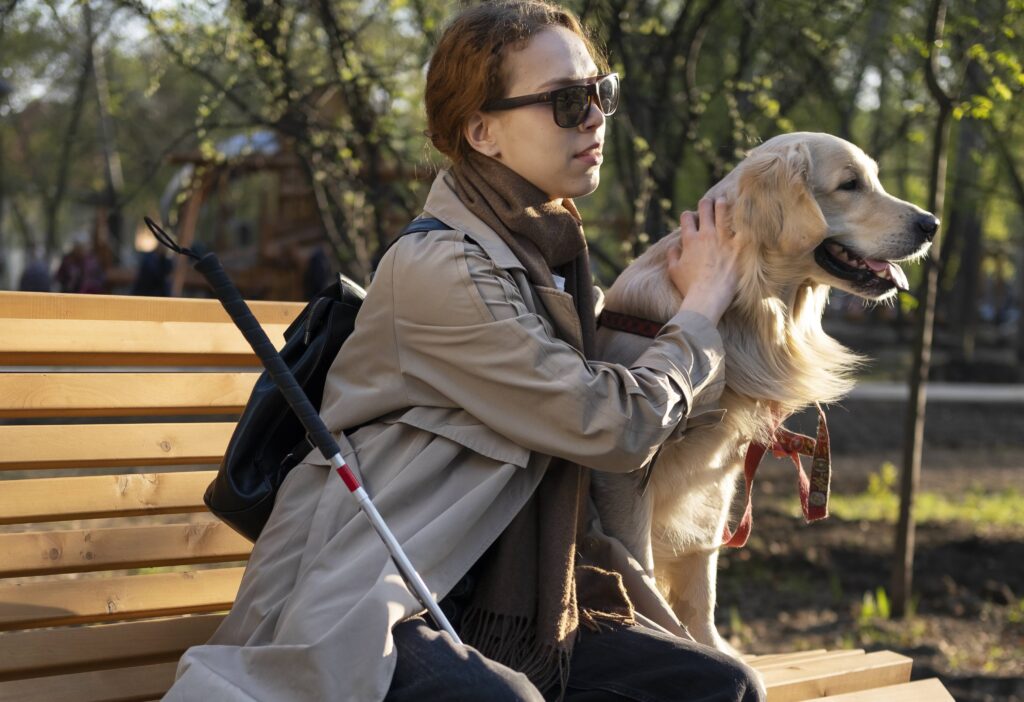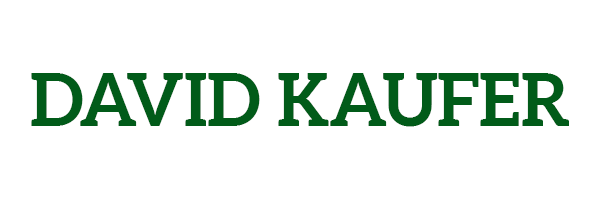There was a time when guide dogs were misunderstood. Imagine this: a blind person walking confidently down the street, guided by a loyal, highly trained dog. To most of us, this is a picture of independence. But there was a time when others saw it differently. They questioned whether relying on a dog undermined the individual’s autonomy. Wouldn’t a cane or sheer personal determination be a more “independent” way to navigate the world?

Fast forward to today, and guide dogs are universally seen as tools of empowerment. They enhance mobility, freedom, and confidence. What changed? Education, exposure, and the undeniable proof of their effectiveness. Once people understood that guide dogs expanded—not limited—their users’ independence, the argument faded. Now, imagine if we applied that same understanding to Spelling and Communication Regulation Partners (CRPs).
For my son Stone and many non-speakers, Spelling/Typing (or as I prefer to call it, Autonomous Cognitive Communication/ACC) has been nothing short of transformative. Yet, like guide dogs in their early days, Spelling/ACC and CRPs are often met with skepticism. Critics claim that reliance on a CRP undermines a non-speaker’s independence. I hear echoes of those early objections to guide dogs, and it makes me realize how much we have to learn—and unlearn—about what it means to support independence.
Independence Isn’t Isolation
One of the biggest misconceptions about independence is that it means doing everything alone. But does it? True independence isn’t about rejecting help; it’s about having the tools and support to live a life that aligns with your goals and potential. For non-speakers, a CRP serves as one of those tools, much like a guide dog does for someone who is visually impaired.
Stone, for example, relies on a CRP to hold the keyboard steady and help him stay regulated while typing. This support isn’t about controlling him; it’s about providing the structure he needs to communicate his thoughts clearly. Just as a guide dog provides tactile cues to help its handler navigate safely, a CRP helps a speller navigate the mental and physical challenges of communication.
Critics often fail to recognize the complexity of communication for non-speakers. It’s not just about typing letters; it’s about overcoming apraxia, sensory overload, and years of being underestimated. To suggest that CRPs undermine independence is to ignore the profound challenges non-speakers face—and the monumental achievement that effective communication represents.
The Importance of Presuming Competence
The skepticism surrounding CRPs often stems from a failure to presume competence. Non-speakers, like Stone, are almost always underestimated simply because they can’t communicate in conventional ways. Before Spelling, Stone was trapped in a world where his intelligence and personality were invisible to most people. Today, through Spelling/ACC, he’s not only able to express his thoughts but also to dream big and plan for his future. His goal? To someday attend Harvard—a dream that would have been dismissed outright if we hadn’t presumed his competence.
This skepticism reminds me of how some people used to view guide dogs. They couldn’t fathom how a dog could be trained to guide someone safely or how the handler could trust the dog to make decisions. That doubt faded only when the world saw guide dogs in action—when their impact became undeniable. The same is happening with Spelling/ACC. Literally every day, more stories emerge of non-speakers achieving academic success, writing poetry, creating art, and even advocating for themselves. The wave of voices is growing, and with it, the undeniable proof of their independence and capability.
Building a World That Supports Inclusion
We live in a world that often measures people by their ability to conform to narrow standards of communication and behavior. When someone steps outside those norms, we tend to label them as “less capable.” This mindset is a barrier to inclusion, not just for non-speakers but for anyone who needs support to navigate the world.
What if, instead, we focused on creating systems and tools that allow everyone to thrive? Guide dogs are one example of this. They were once seen as a novelty; now, they’re a universally accepted accommodation. Imagine if we could normalize CRPs in the same way. Imagine a world where no one questions the validity of a non-speaker’s words simply because they typed them with the support of a CRP.
Moving Beyond Misconceptions
The parallels between guide dogs and CRPs don’t end with the skepticism they’ve faced. Both are tools that help individuals unlock their full potential. Both challenge society to rethink its definition of independence. And both require a level of trust—trust in the process, in the individual, and in the partnership.
The shift in perception around guide dogs didn’t happen overnight. It took advocacy, education, and countless stories of how these partnerships transformed lives. The same is true for Spelling/ACC and CRPs. Every non-speaker who finds their voice, every parent who advocates for their child, and every professional who embraces inclusion is part of this larger movement. Together, we are challenging outdated notions and proving that independence isn’t about doing it alone—it’s about having the support to thrive.
The Path Forward
Just as guide dogs once needed champions to advocate for their legitimacy, Spelling and CRPs need advocates today. We must challenge the misconceptions, educate the skeptics, and amplify the voices of non-speakers. Most importantly, we must continue to presume competence and recognize that every individual has the right to communicate and be heard.
Stone’s journey—and the journeys of countless other non-speakers—show us what’s possible when we move beyond skepticism and embrace support. These tools and partnerships don’t diminish independence; they unleash it. And as we’ve seen before, once the world understands that, the argument against them will fade into history.
